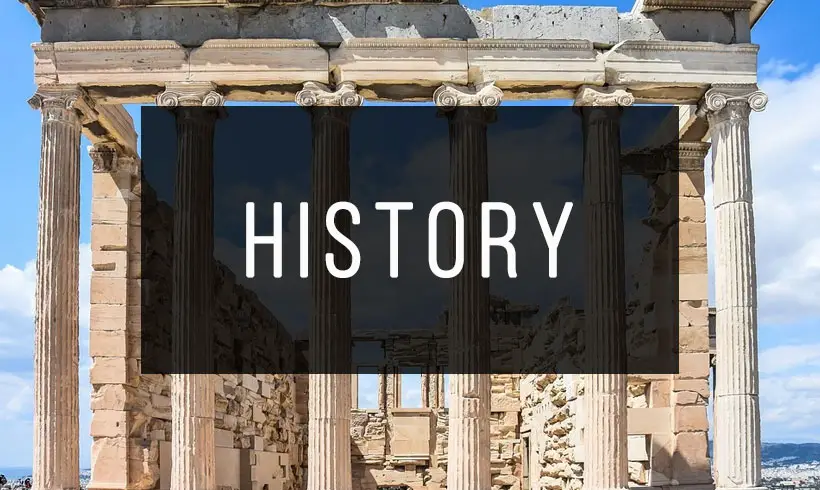Welcome, history lover! Here you will find a wide collection of history books to download for free and immerse yourself in fascinating stories from the past.
Browse through our categories and discover the great variety of history books we have for you. From antiquity to contemporary history, we cover all periods and regions you can imagine.
We strive to keep our digital library updated and constantly expanding, so don’t forget to visit us regularly to discover the latest additions to our history books collection.
Don’t wait any longer and start your historical adventure now! Download your favorite history books and dive into exciting journeys through time, while broadening your knowledge and fueling your passion for the past.
Enjoy your reading!
1) Argentina History Books

Argentina has given birth to international symbols such as the gaucho, Evita Perón, and Che Guevara. Its population is predominantly composed of descendants of Italian and Spanish immigrants, who impart an unmistakable flavor to its culture and language. Understanding its past is essential to comprehend its present.
A decade after Christopher Columbus discovered America, other European explorers began to inspect the estuary of the Río de la Plata. Almost all early explorations were motivated by rumors that these lands hid immense quantities of silver.
In fact, the name Argentina still alludes to those hypothetical riches that the newly conquered land promised to Spanish explorers.
2) Art History Books
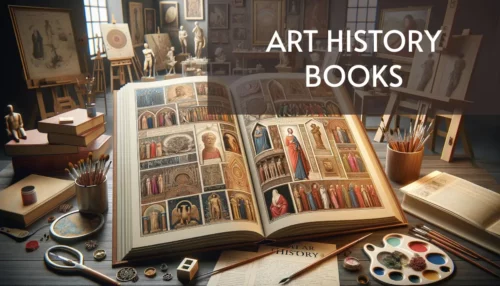
The history of art is the science that studies the evolution of art through time and space, since different histories of art can be proposed depending on the time period and the geographical territory that is delimited.
The origin of the arts is uncertain and involves not only aesthetics but also the awareness of the creation of a work of art. Some art historians have defined the cradle of art in the Chauvet Cave, where the oldest cave painting discovered, dating from approximately 30,000 years ago, is found.
Knowing concepts of Art History helps people who are enthusiasts of any artistic branch to enjoy the works of art, prevailing over the fact of only seeing the artworks without delving into their meaning, time or place of creation; the greater the understanding of a particular work of art, the greater the pleasure experienced by those who contemplate it in depth, analyzing its historical context and meaning.
3) Biblical History Books
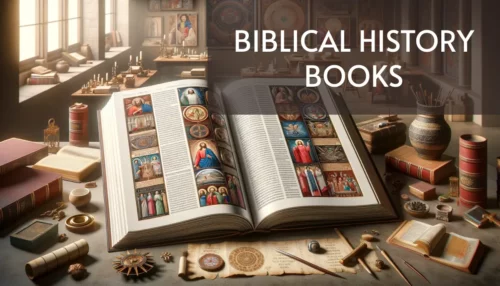
The history of the formation of the best-selling book of all time is a fascinating story that spans not just centuries, but millennia. The thirty-nine books of today’s Old Testament were composed over the course of about a thousand years by forty different authors.
The books that make up the Old Testament were arranged in ancient Greece under the name Septuagint Bible, also called the Greek Bible, Bible of the Seventy or simply LXX. This number was due to the fact that the number of its translators, 72, was rounded to 70. This Bible is, therefore, a translation and arrangement of several texts written in Aramaic and Hebrew, and some others in Greek, ordered by Pharaoh Ptolemy II Philadelphus in the 3rd century BC and completed in the 2nd century BC.
The New Testament and the compilation of the Gospels portraying the life of Jesus had numerous sources and authors. The oldest papyrus of the New Testament is a fragment of John dating from 125-130 AD.
4) Books about Hitler

Adolf Hitler was the leader (Führer), or undisputed dictator, of Germany from 1933, when he came to power, until April 30, 1945, when he committed suicide in his bunker in Berlin. Born in Austria in 1889, he initially had little success in life and became a wandering figure in pre-World War I Vienna.
Hitler joined the German Workers’ Party, a nationalist organization, in September 1919, and by April 1920, he was dedicating all his time to it. By that time, the party had been renamed the National Socialist German Workers’ Party (abbreviated as the Nazi Party), and Hitler was elected its president with dictatorial powers in 1921.
After shaking the world with his dream of German racial hegemony, causing a global total war and unprecedented genocide in concentration camps, Hitler committed suicide in the Chancellery bunker where he had taken refuge, just a few days after the Russians entered Berlin.
5) Books about Nazism

Nazism or also called National Socialism was a political ideology that emerged in Germany during the 20th century and whose main leader was Adolf Hitler, who ruled the country from 1933 to 1945. This fascist movement was created after World War I, at a time when this ideology was gaining strength in some European countries.
The German defeat in World War I left the country with large economic debts and deteriorated morale. The solid and nationalistic proposal created a possible way out of the crisis, which for Germany was the main motivation.
Officially, on January 28, 1933, Adolf Hitler, leader of the National Socialist Party, was appointed Chancellor of Germany. Thus began the implementation of one of the ideologies that has caused the greatest loss of life in the history of the 20th century.
6) Books about the Maya
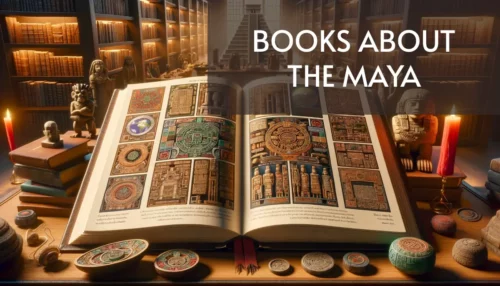
The Maya were a civilization, settled in Central America, that lasted from the 20th century B.C. to the 15th century A.D., when it came to an end during the conquest of America. This culture introduced great advances in mathematics, writing, architecture and astronomy, and had its own social, political and religious organization, which influenced the development of later cultures.
The religion of the Maya shared traits with much of the rest of Mesoamerica. They believed in a spiritual plane inhabited by powerful deities. Their gods had to be appeased through ritual practices, human sacrifice and ceremonial offerings.
Among the territories occupied by the Maya are some in Guatemala, Belize, Honduras, El Salvador and southeastern Mexico, specifically in Campeche, Chiapas, Quintana Roo, Tabasco and Yucatan. There are still descendants who speak at least one Mayan language and continue to live in the regions from which their ancestors came.
7) Books on Capitalism

Capitalism is an economic system in which individuals and businesses conduct the production and exchange of goods and services through transactions with prices and free markets regulated by the law of supply and demand.
Other names by which capitalism has been called since its origin are “free market economy” or “free economy.” Although merchants and trade have existed since the earliest civilizations, the capitalist system did not appear until the 13th century in Europe.
Modern capitalism emerged in the second half of the 18th century, a time when the industrial revolution appeared and political thought was moving towards a new scheme of individual freedoms, both political and economic.
8) Books on Chinese Culture

Chinese culture is a set of beliefs, customs, and artistic expressions that extends across a vast territory, combining elements passed down through hundreds of generations with contemporary creations. It is one of the oldest cultures in the world, and much of the thought and customs established thousands of years ago are still preserved.
China has several traditional festivals celebrated throughout the country (in various forms). The most important ones are the Chinese New Year and the Mid-Autumn Festival. China, with its “55 ethnic minorities,” also has many ethnic festivals. From Tibet to Manchuria to the tropical south of China, different tribes celebrate their New Year, harvest, among other things.
Dance is a highly popular expression in Chinese culture. In parks or squares of some cities or towns, it is common to find a group (usually of older people) dancing in a completely synchronized and choreographed manner. For them, it is a form of exercise, as well as a way to socialize and build community.
9) Books on Communism
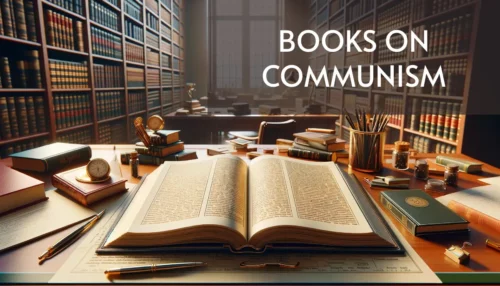
Communism is a political, economic and social doctrine that aspires to the equality of social classes through the elimination of private ownership of the means of production (land and industry). It is usually classified as an ultra-left doctrine due to the radical nature of its proposals.
In 1841 communism as we know it was first spoken of. After the Industrial Revolution, workers were at one of their worst moments, living in abject poverty, receiving minuscule wages and working exhausting hours. It was then that Karl Marx and Friedrich Engels published the Manifesto of the Communist Party.
Communism has been criticized from different quarters. There are those who believe that a classless society is impossible (some group will always have power; in the case of communism, it would be the bureaucrats). On the other hand, many believe that capitalism and its profit motive is the only system that promotes economic development.
10) Books on Neoliberalism
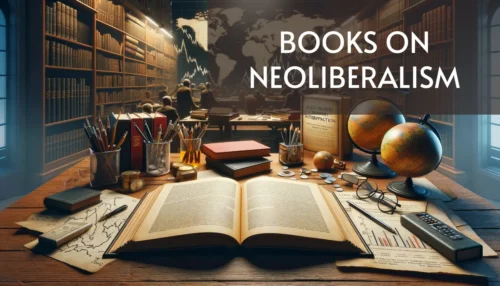
Neoliberalism can be defined as a set of capitalist political and economic ideas that advocate for the non-participation of the State in the economy, excluding any governmental interference.
Neoliberalism emerges as a reaction to the state intervention as a guarantor of greater social justice (i.e., the welfare state), gaining momentum due to the debacles of capitalist economy in the 20th century.
The Chicago School of Economics was crucial in the development of neoliberalism. Milton Friedman and George Stigler are considered two of the main thinkers who promoted these ideas.
11) Books on the Aztecs
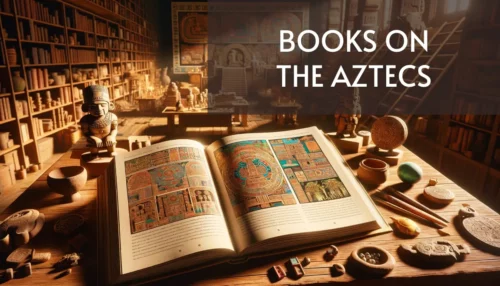
The Aztecs, also known as the Tenochcas or Mexicas, are one of the most well-known Mesoamerican peoples of the pre-Columbian era. They were the founders of the largest and most powerful political-territorial entity in the region until the arrival of the Spanish conquistadors in the 15th century: the Aztec Empire, located in the central-southern region of present-day Mexico.
The Aztecs settled in the center of the Valley of Mexico. From there, they expanded across the Mexican highlands and southward through conquests and alliances, eventually encompassing a territory of around 300,000 km² and a population of nearly 7 million inhabitants.
The culture of the Aztec Empire was strongly influenced by the Olmec culture that preceded it in the same region. The Aztec Empire is known for its cycles of 52 years, blood sacrifices at the Templo Mayor, mandatory tax system in the influence zone, the habit of bathing twice a day, and the introduction of chocolate and tomatoes.
12) Books on the Byzantine Empire

The title of the Byzantine Empire has traditionally been applied to the territory that emerged after the fall of the Roman Empire in the eastern sector of Europe, including some territories in Asia and Africa. It was, therefore, the portion of territory that continued to maintain an imperial format in contrast to the Roman-Germanic states that emerged independently in Western Europe.
With Byzantium as its capital, the Byzantine Empire was a commercial, military, and cultural power whose legacy can still be appreciated today. Although it is very difficult to mention reliable statistics, some historians argue that the Byzantine Empire had around 25 million inhabitants.
After the zenith of Justinian’s rule in the 6th century, the Byzantine Empire did not expand its territory further. Years of prosperity followed, during which the Byzantines developed one of the greatest empires of the Middle Ages.
13) Books on the Conquest of Mexico
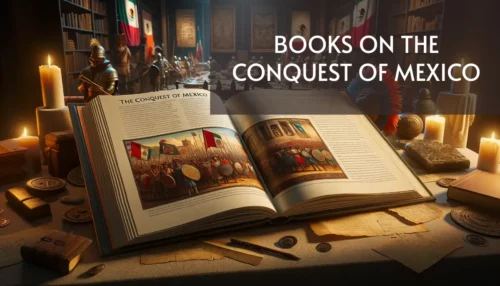
The conquest of Mexico refers to the set of military, conspiratorial, and political actions aimed at subjugating the Aztec state and destroying the resistance of the indigenous populations inhabiting the territory that is now Mexico.
These events took place between the years 1518 and 1521 and were led by Hernán Cortés. From this moment, the colonization of Mexico by the Spanish crown began. This was the main event that later allowed the expansion of Spanish dominions throughout Mesoamerica and the foundation of new kingdoms and cities across the 16th century.
Cortés and his men received assistance from various peoples in the area eager to rid themselves of Aztec rule on their march toward Tenochtitlán. These alliances, coupled with military superiority, allowed the Spanish to emerge victorious.
14) Books on the Conquest of the Americas
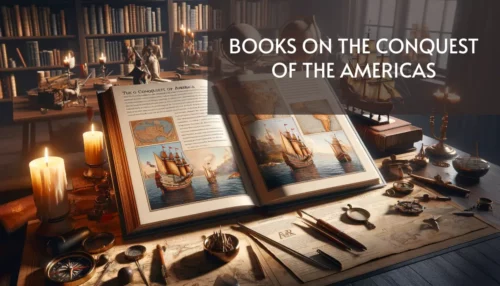
The conquest of the Americas was a process by which the great European powers, mainly Spain and Portugal, explored and conquered the American territory from the end of the 15th century and throughout the 16th century. The objective of this campaign was to expand the European territories, their trade, economy and evangelization.
The economic ambitions of the European metropolis and the search for gold led Christopher Columbus to undertake a voyage across the ocean with three ships: The Santa María, the Niña and the Pinta. On October 12, 1492, Columbus disembarked with his crew in America, believing he had reached Asia.
If you want to know everything about this historical fact, we invite you to visit our selection of books about the Conquest of the Americas in PDF format.
15) Books on the Holocaust

The Holocaust was the mass murder of millions of people by the Nazi regime during World War II, which took place between 1939 and 1945. The Jewish population was the main target of the Nazis, and it is estimated that 2 out of every 3 European Jews died during this extermination campaign.
The Nazi party was founded on the ideological basis that people were determined by their race, and as such, there were superior and inferior races. The Aryan race was considered the ‘master race’, while Jews were seen as ‘inferior’.
The Holocaust was the largest known case of genocide in history. It was not the result of a sporadic or uncontrolled outburst of passion, the outcome of the brutality inherent in all warfare. Nor was it a merely brutal massacre of defeated enemies and civilians after combat. It was a true program of ideologically motivated genocide, deliberately planned and effectively executed with all the resources of a modern industrial state and an advanced society.
16) Books on the Incas
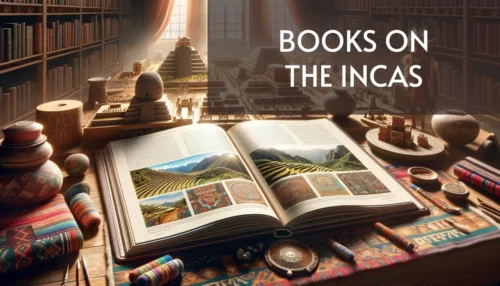
The civilization known as the Inca, Quechua civilization, or Inca culture (sometimes also written as Inka), was one of the most important pre-Columbian cultures. This civilization governed a powerful empire in South America when the Spanish conquistadors arrived in 1532.
According to the mythical narrative of its origin, their ancestors arrived in the Cusco Valley from the region of Lake Titicaca and founded the city of Cusco, which was considered the center of the world. From there, the Incas expanded across a vast territory to the north and south. The empire reached 10 million inhabitants from different ethnicities.
The Inca Empire began to dissolve at the end of the 15th century, facing several rebellions. In 1533, the Empire was conquered by the Spanish. Emperor Atahualpa was executed, and after his death, the Incas retreated to the mountains, where they resisted until 1571 when the last leader, Tupac Amaru, was captured and killed.
17) Books on the Inquisition

The Inquisition, also known as the Holy Inquisition, was an institution dedicated to the investigation, condemnation, and punishment of heresy, which was associated with the Catholic Church. Its operational period extended from the Middle Ages, when the first inquisitorial organ was inaugurated in France in 1184, until the 19th century when it was abolished.
The Inquisition manifested itself through different chapters or inquisitorial installations, known by the names of their nations: the Spanish Inquisition, the Portuguese, the Roman, etc. The term “medieval inquisition” is often used to distinguish it from the one that survived into the Early Modern Age.
The various practices of the Inquisition included torture, public humiliation, and even burning at the stake of the condemned, who could even be scientists contradicting certain biblical postulates with their work.
18) Books on the Mexican Revolution

The Mexican Revolution was an armed conflict that began in 1910, as a result of popular discontent towards the dictatorship of Porfirio Díaz, and which would lead to a civil war that radically transformed the political and social structures of the country. It is considered the most important historical event in Mexico’s 20th-century history.
Different groups, advocating for political and social rights, joined forces for this objective, but later engaged in guerrilla warfare during one of the most tumultuous periods in Mexico’s history, resulting in over a million deaths.
The Mexican Revolution ended in 1920 with the arrival of the so-called Sonoran Group to power. One of the most significant contributions of the Mexican Revolution was the recovery of land ownership, as well as the enactment of the new electoral law starting in November 1911 with Francisco I. Madero.
19) Books on the Mongol Empire
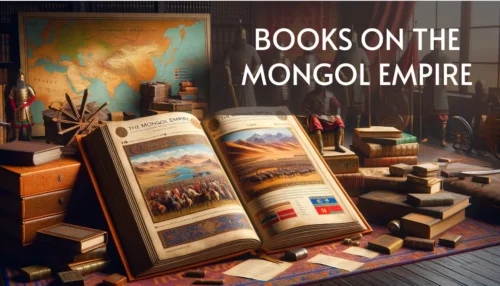
In the 13th century, the troops of Genghis Khan embarked on a period of conquests, and within a few years, the immense Mongol Empire was consolidated. Although the Mongols did not possess a large army, they mastered military strategy and had two powerful assets: expert cavalry and skilled archers.
It is the second largest empire in history, after the British Empire, as it came to encompass around 24,000,000 km². It included present-day territories of Mongolia, China, Korea, Iran, Iraq, Afghanistan, Kyrgyzstan, Uzbekistan, Turkmenistan, Kazakhstan, and parts of Turkey and Russia.
In 1294, the Mongol Empire split into 4 states: the Yuan, which dominated China, Korea, and Mongolia; the Golden Horde, which controlled southern Russia and Western Asia; the Ilkhanate, centered in Persia; and the Chagatai Khanate, in Central Asia.
20) Books on the Ottoman Empire
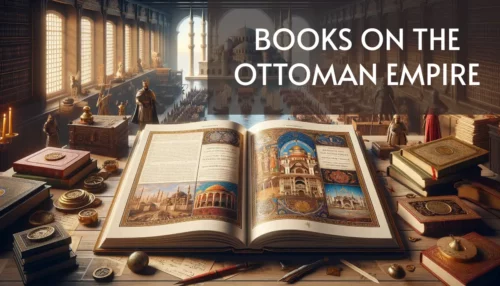
The Ottoman Empire, also known as the Ottoman Turkish Monarchy, was a highly methodical and multi-testimonial type of government. Its peak glory is observed in the 16th and 17th centuries, expanding over a vast area of Southeastern Europe, the Middle East, and North Africa, bordering Morocco to the west, the Caspian Sea to the east, and Sudan, Eritrea, Somalia, and Arabia to the south.
It was characterized by its great military power, which was feared by all its neighboring territories, and by its destruction of what remained of the Byzantine Empire, as well as other major empires. It came to control 29 provinces and various vassal states that paid tribute to it.
The decline of the Ottoman Empire was slow and resisted much longer than expected, to the point of being known as the “sick man of Europe” during the 19th century. Suffocated by internal political crises, an inefficient and outdated military apparatus, and an economy that had failed to industrialize, the Ottoman Empire succumbed after World War I.
21) Books on the Renaissance

The cultural and artistic movement that emerged in Italy between the 14th and 16th centuries is known as the Renaissance. It spread throughout Europe (especially in countries like Germany, the Netherlands, England, France, Spain, and Portugal).
Its name comes from the idea of the rebirth of cultural elements that had disappeared during the Middle Ages, such as the primacy of reason, proportion, balance, and moderation, many of which were present in the ancient cultures of classical Greece and Rome.
On the other hand, the political and social changes brought about by this period were of importance throughout the Western world: the end of medieval religious thought and the aristocratic feudal system, the emergence of bourgeois cultures, and the beginning, somewhat later, of capitalism.
22) Books on the Spanish Civil War
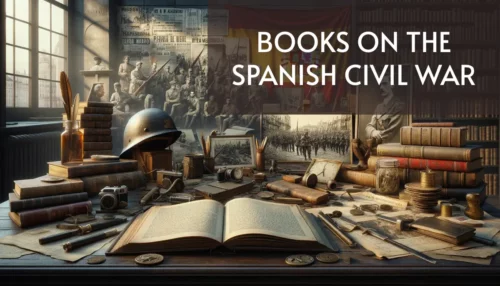
The conflict known as the Spanish Civil War, or simply the War of Spain, took place in Spain between July 17, 1936, and April 1, 1939. It pitted the legitimately constituted government of the Second Spanish Republic against various factions of the insurgent Spanish army.
The Spanish Civil War began on July 17, 1936, when Generals Emilio Mola and Francisco Franco launched a rebellion to overthrow the democratically elected Republic. The war concluded on April 1, 1939, when Franco declared victory for the Nationalist faction and established a dictatorship, Francoism, which would last until his death on November 20, 1975.
At the end of the Civil War, approximately 500,000 Spanish Republicans fled to France. Following Germany’s defeat of France in the spring of 1940, Nazi authorities conscripted Spanish Republicans for forced labor and deported over 30,000 to Germany, where approximately half of them ended up in concentration camps.
23) Books on the Vietnam War
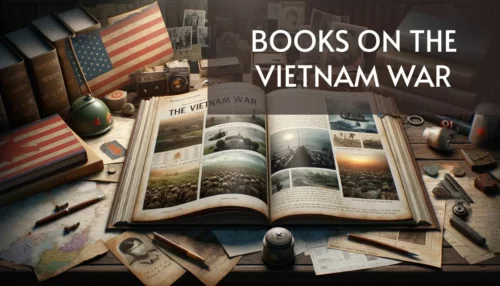
Set against the backdrop of the Cold War, Vietnam was a protracted conflict that took place between 1955 and 1975. The Republic of South Vietnam, pro-Western and backed by the United States (1965-1973), faced off against North Vietnam, communist.
Lasting for twenty years, this war exacted a heavy human toll, especially among the Vietnamese factions involved (250,000 dead and 1,170,000 wounded in South Vietnam, compared to 1,000,000 dead and 600,000 wounded in North Vietnam), as well as among civilian populations in Vietnam (2,000,000 deaths), Cambodia (200,000 to 300,000), and Laos (20,000 to 200,000).
The war between the two sides ended in 1975, with the capture of Saigon by North Vietnamese forces. On July 2, 1976, the country was reunified under the name Socialist Republic of Vietnam.
24) Brazil History Books

Brazil is the largest and most populous state on the continent, and it is the only one where Portuguese is spoken. It was discovered in 1500 by the Portuguese navigator Pedro Alvares Cabral, although it is believed that Vincente Yáñez Pinzón had already reached its shores in 1499.
From the 1870s, many Europeans emigrated to Brazil. There was a significant increase in immigrants from the 1890s to the 1920s, including many Italians, Germans, and Portuguese. Japanese immigrants also formed a significant part of this influx.
The republican constitution was approved on February 24, 1891, creating a federal state that endured until 1930. In its early years, the new republic had to overcome uprisings from the navy and the army in 1893.
25) Chile History Books
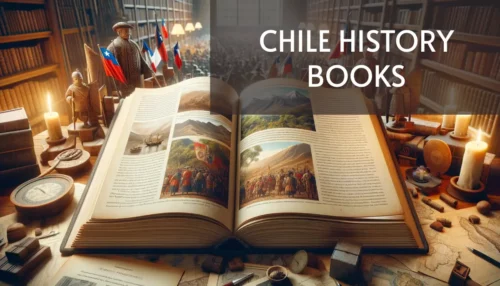
The first human beings arrived in Chile around 12,000 B.C. Initially, people lived by hunting and agriculture, but in northern Chile, agriculture began around 2,500 B.C. However, agriculture started much later in southern Chile.
In 1557, Spain, through a governor, took possession of Chilean territory. Within this colonial empire, Chile was initially a dependency of the Viceroyalty of Peru before having its own government, led by a governor and a royal tribunal.
The process of Chile’s independence began with the establishment of the First Government Junta on September 18, 1810, following the arrest of King Fernando VII in Spain by Napoleon I. This marked the beginning of the period known as the “Old Homeland” (Patria Vieja), which lasted until the Battle of Rancagua in 1814. Chile’s independence was finally declared on February 12, 1818, under the government of Supreme Director Bernardo O’Higgins.
26) Chinese History Books
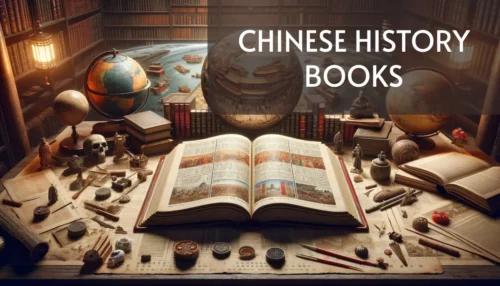
China is a country with a millenary history. A nation with ancestral traditions and a culture that goes back several centuries in time. It is one of the world’s four ancient civilizations, and China’s written history dates back to the Shang Dynasty (1600 BC – 1046 BC), more than 3,000 years ago.
For centuries, Chinese emperors extended their dominions throughout the Asian continent and beyond, reaching as far as Europe along the Silk Road. To defend themselves against invasions from other peoples, they built the Great Wall of China, one of the seven wonders of the world.
The Republic of China, which lasted barely 40 years on the mainland (1912-1949), is still considered a dark chapter in modern national history, in which the country was threatened by what many describe as “external imperialism and internal warlordism”.
27) Cold War Books
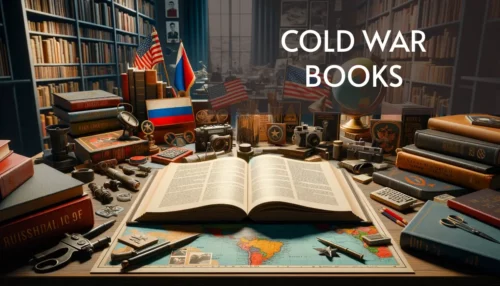
The Cold War was a political and ideological confrontation that developed after World War II, in which the United States and the Soviet Union faced each other for the political and economic hegemony of the world.
The Cold War began shortly after the end of World War II in 1945, and ended with the end of the Soviet Union in 1991 after the economic crisis that resulted from the large acquisition of armaments and the fall of the Berlin Wall in 1989.
The disagreement in the division of Germany among the victorious powers of World War II caused the split of the Western world into two blocs: a communist one led by the USSR, and a capitalist one dominated by the United States. Both blocs maintained a tense relationship that threatened the unleashing of a third great conflict.
28) Colombian History Books
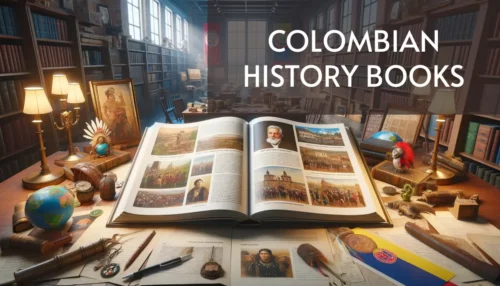
The territory we know today as Colombia was originally inhabited by the Tairona and the Muisca. These peoples were dedicated to goldsmithing with beautiful creations and the use of precious minerals.
With the arrival of the Spanish, everything changed. They were dazzled by the wealth of the indigenous population and were carried away by the legends of El Dorado, the city of gold they were obsessively searching for and which led them to the Muisca people, who threw gold offerings into the Gautavita lake.
Then, during the 19th century, great changes took place in Colombia, the country went from being a dependency of Spain to an independent country, thanks to the wars of independence, then continued with the political processes to form an independent nation.
The following decade can be divided into four phases: the Foolish Fatherland, the Nariño Campaign in the south, the Reconquest and the War of Independence, which was a decisive triumph in July 1819, and on August 7, with the defeat of the Royalist Army, Colombia’s independence was sealed.
29) Cuba History Books
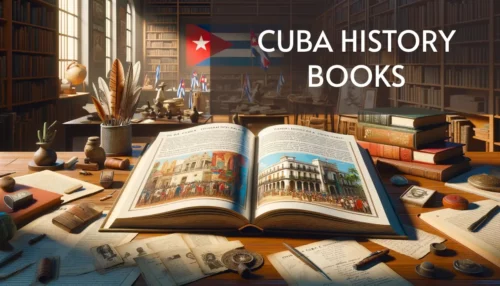
Cuba was discovered by Christopher Columbus on October 28, 1492, but he later decided to leave it to continue exploring other Caribbean islands. A few years later, in 1511, a Spanish explorer (Diego Velázquez de Cuellar) arrived with 400 men with the intention of colonizing the island under the rule of the Spanish Crown.
Cuba fought three wars of independence against Spain: the Ten Years’ War, the Small War, and finally, the Cuban War of Independence, from 1895 to 1898. The last three months of this war escalated into the Spanish-American War.
The Republic of Cuba was formally established on May 20, 1902, and its constitution included the Platt Amendment, authorizing American intervention in the country’s affairs and the establishment of two naval bases in Cuba in exchange for customs privileges.
30) Egyptian History Books
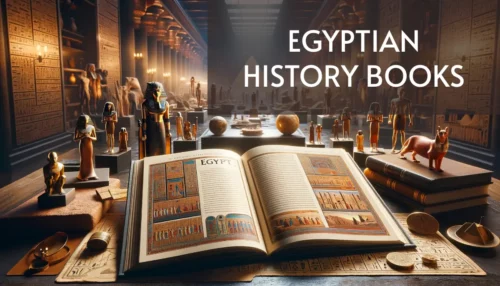
More than 3,000 years ago, the territory we now know as Egypt was home to one of the greatest civilizations in the history of humanity. The first inhabitants of Egypt settled on the banks of the Nile fleeing from the desert. These first natives, isolated and without close enemies, were ruled by «divine» beings who were followed by semi-heroic dynasties: «the descendants of Horus».
In the north, just in the area where the Nile delta is located, the kingdom of Lower Egypt was constituted, which was dedicated to agriculture and trade. Its distinctive feature was a red crown adorned with a cobra and its patron goddess was Wadjet (or Buto).
Further south settled the kingdom of Upper Egypt, which was devoted almost exclusively to livestock and was characterized by being more warlike than its neighbors. In this case, its distinctive feature was a white crown, tall and with the figure of a vulture and its main city was Nekhen.
31) Egyptology Books
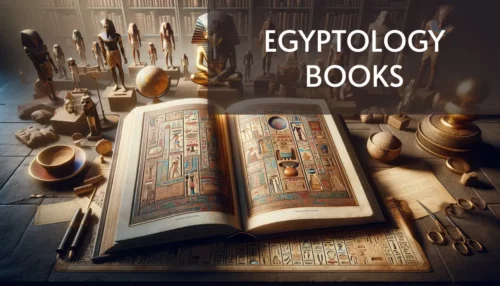
The knowledge possessed by the Egyptians in ancient times is innumerable, and for you to learn a little about it, we present a set of free Egyptology books in PDF format.
Through Egyptology, the world has been able to discover that the Egyptians developed an idea of practical mathematics, measuring instruments, efficient tools, and technology that allowed them to carry out pharaonic works and fantastic constructions.
All the significant advances made by this civilization have been recorded by experts in the field, and you can learn about them by reading the texts we share in this section of our virtual library.
32) French History Books

For all those readers who delight in learning about the history of nations, we have created a comprehensive list of free history books about France in PDF format.
French history is filled with battles, struggles, invasions, wars, and reigns, which over time led to the construction of an empire.
Discover each stage experienced by the Franks throughout history and uncover how the European country we know today as France was formed.
33) French Revolution Books

The France of 1799 was totally different from that of 1789. In barely a decade, the Revolution had created a completely new state. From an absolutist monarchy it had become a republic. There were no longer subjects, but citizens. Society, previously led by the aristocracy and the clergy, now had the bourgeoisie as its main driving force.
The French Revolution spread throughout the world the ideals of liberty and fraternity, as well as that of popular sovereignty; and spread, primarily, the knowledge of the fundamental rights of man and citizen.
If you want to know more about this historical process that marked the future of humanity, we invite you to visit our selection of books about the French Revolution in PDF format.
34) German History Books
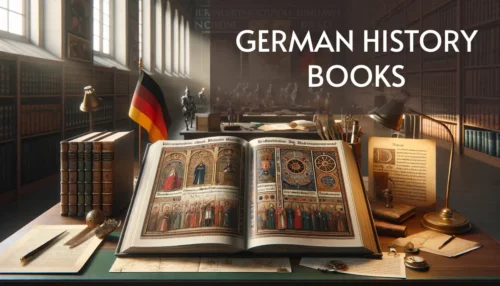
There are many events that are part of the birth and formation of a country, and to acquaint you with all of them, we bring you a selection of free history books about Germany in PDF format.
The word “German” originated in the 8th century and referred to the eastern area of the kingdom of the Franks, which covered what is now France and Germany.
Before becoming the country we know today, the German nation was a kingdom emerged from the eastern Frankish kingdom; and everything that happened between these two moments can be found in the texts we present in this section.
35) Greek History Books
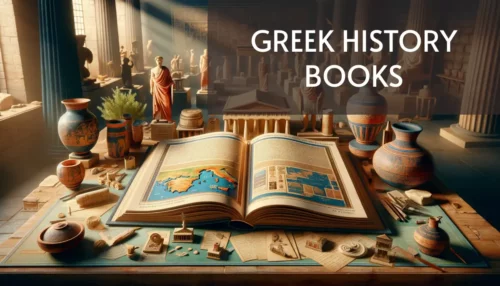
Ancient Greece was the cradle of Western progress. Its philosophy, theater, medicine, art, democracy and sports have influenced the culture of all of us and, even today, the history of Greece is perceived beneath our daily life and our world.
The first human settlements in Greece date back to the Middle Paleolithic, but the most abundant vestiges belong to the Neolithic, a period in which an agricultural and pastoral civilization developed, especially in Thessaly.
Since the Neolithic, the Greek peninsula has been culturally linked to the Aegean islands and the western coasts of Asia Minor. Its numerous natural harbors along the coasts and the large number of nearby islands have contributed to the development of a homogeneous maritime civilization. But their cultural homogeneity did not imply political homogeneity.
36) History of England Books

As one of the main countries in the world, its state actions have determined changes in other territories, and in different areas, this is why we created a complete series of free books on the history of England in PDF format.
A nation that has served as an example and model for other countries in aspects such as judicial and religious, is a power worthy of being known and studied since its emergence.
In this section, we present a series of texts in which you can learn all about England, and the most important events that have occurred in this country.
37) History Of Religion Books
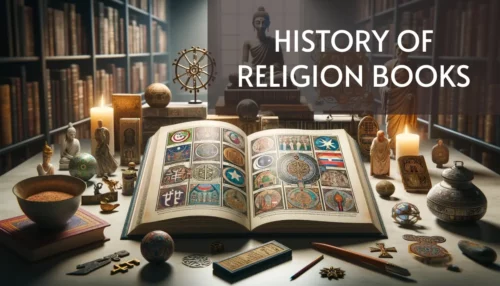
If you are interested in expanding your knowledge of general culture, we invite you to read our free history of religion books in PDF format.
Through the history of religion, you can learn a lot of interesting facts about the different religious practices that exist today.
By reading our texts you will learn about Judaism, Christianity, Islam, and other religions that have been practiced and are still practiced in the world.
38) Industrial Revolution Books

The Industrial Revolution began in Great Britain and then spread to the rest of Europe. The existing economy before the industrial revolution was based on the agrarian and artisan world; three quarters of the population subsisted on agricultural work. It was mainly based on self-consumption and not on the commercialization of the products obtained, since productivity was also very low.
With the industrial revolution, industry and manufacturing activities replaced manual labor. This led to the mechanization of many production processes and the elimination of many jobs, since these tasks were now carried out by machines.
Initially, the Industrial Revolution brought about a radical change in all areas of society. The industrial and mining development, the increase in productivity, the growth of cities and the improvement of national and international trade will contribute to a great demographic growth due to the increase in the birth rate and life expectancy.
39) Italy History Books

One of the most globally renowned nations is Italy, as it has been the center of various significant events worldwide. That’s why we bring you a series of free history books about Italy in PDF format.
Throughout history, the Italian territory has harbored diverse cultures such as Greek, Etruscan, and Roman, making its history extremely vast, extensive, and interesting.
To acquaint you with everything about one of the most visited countries in the world, we present a diverse selection of texts where you can explore the history of beautiful Italy.
40) Japanese History Books

The term “Japan” originates from the term Nippon, which translates literally to “the origin of the sun” in Spanish. Therefore, the official and original designation of the Japanese nation is Nippon-koku, meaning “the country of the origin of the sun.”
Initially a feudal nation, where the highest representation of power was the emperor, who held a spiritual function. Following the emperor were the shoguns, traditionally Buddhists who could be understood as the kings in the different regions that comprised Japan. Military leaders were called Daimyo, samurais were warriors, ronin were soldiers, and then came the peasants.
The Japanese people have endured much throughout history, sometimes due to natural causes such as earthquakes (Fukushima 2011) that have devastated the country, and other times due to man-made causes, such as the atomic bomb (Hiroshima and Nagasaki 1945), which destroyed a significant part of society and left an indelible mark on the history of this country.
41) Mexico History Books
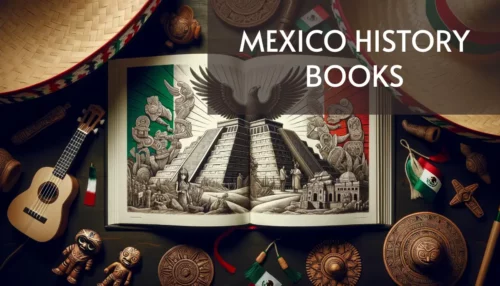
The History of Mexico includes the rise and fall of beautiful and great civilizations. As well as the clash and the mixture of the Spanish culture with the indigenous one, and a war of a revolutionary nature that would change the political aspect of the country, and would renew its cultural identity.
Mexico was a mixture of peoples when Europeans arrived in the region. During the 300 years of the viceroyalty of Spain in the Mexican territory, the country gradually became a homogeneous territory with common features. At the beginning of the 19th century, after the independence of the Spanish kingdom, the country began with an integration process that allowed it to reach present-day Mexico.
In the 19th century, internal disputes and wars took place, as well as several attempts at usurpation by foreign powers. In this period, Mexico lost approximately half of its territory. After this, the consolidation of the free and sovereign nation that is today began.
42) Roman Empire Books
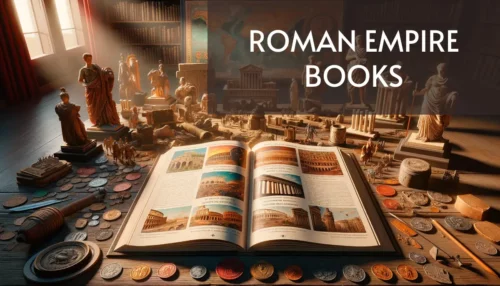
Known as one of the most important and powerful empires of Antiquity, the Roman Empire can be described as a phenomenal structure of political, economic, and cultural power that would encompass one of the largest territories in history and would last for more than four centuries until its fall in 476 AD.
It was so important that after its fall there were numerous attempts to reunify and re-found it, giving rise to the Carolingian Empire (at the hands of Charlemagne) and the Holy Roman Empire.
The inventions and innovations generated in the Roman Empire altered the lives of its former inhabitants and continue to be applied in different cultures around the world even today. Advances in road construction, architecture, plumbing, aqueduct construction, and even quick-drying cement were invented or improved upon by the Romans.
43) Roman History Books
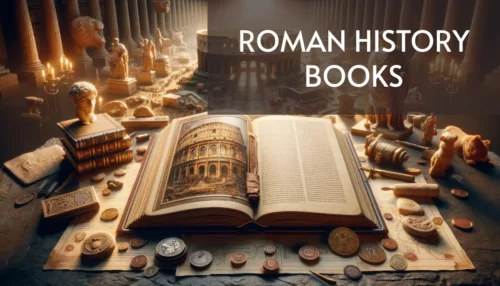
The legend of the mythical foundation of Rome says that the city was founded by the brothers Romulus and Remus, sons of the god Mars and the princess Rhea Silvia, queen of Alba Longa. They were abandoned in the Tiber River to save them from their uncle Amulius, who aspired to the throne of the city. They were rescued by a she-wolf, the Capitoline Wolf, who nursed them, and later they were raised by shepherds.
The diverse theories are based on the information of ancient authors and on the different types of archaeological finds found in Rome. For these reasons, this initial stage of Rome’s history has been placed more in the realm of legend than history.
Possibly, the first inhabitants of Rome came from different places and had neither the economic nor the cultural development of their neighbors to the north, the Etruscans, nor to the south, the Sabines and the Latins.
44) Russian History Books
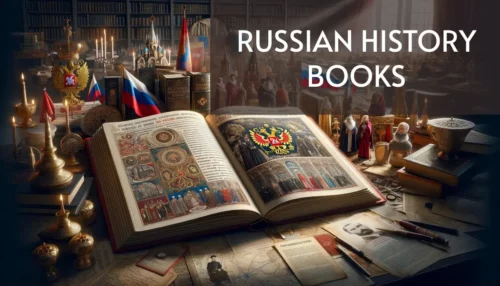
Russia is the largest state in the world, encompassing parts of Eastern Europe and Northern Asia, Siberia. Due to its vast territory, the history of Russia is complex, both in its formation and its development.
The first Russian state, Kievan Rus, existed for about 300 years. It was a federation of principalities governed by the Rurik dynasty. The development of feudal relationships and the prolonged independence of separate cities resulted in the political fragmentation of Kievan Rus.
In this section, you will learn about the Mongol invasion, the czarist regimes, the influence of the Enlightenment and industrialization, wars and revolutions, among other historical events crucial to the development of Russian society.
45) Russian Revolution Books

The Russian Revolution is the set of historical events that took place in Russia at the beginning of the 20th century (1917). It consisted of the overthrow of the tsarist monarchical regime and the construction of a new model of a Leninist republican state.
With a rural Russia and power concentrated in the hands of Tsar Nicholas II, famine and war soon led to profound discontent among the population. The result was a series of uprisings that led to the establishment of a communist system in the country.
Among the consequences of the Russian Revolution can be mentioned: Collapse of the absolutist monarchy of Russia, the Assassination of the Tsarist dynasty, the Formation of the Union of Soviet and Socialist Republics, the Articulation of a communist model of government, the Polarization of the world into capitalist and communist blocs.
46) Socialism Books

Socialism is the theory, doctrine or social practice that promotes public ownership of the means of production and a collective and planned control of the economy in the general interest of society.
One of the main pillars of socialism is to achieve a just society; therefore, one of its proposals is the need for collective or state interference in the administration of the means of production in order to regulate them and centralize economic power.
In its essence, a socialist state has a strong government or state structure with broad power in decision-making in economic matters and in the distribution of income and goods. Over the years, socialist positions have evolved from their more classical premises to a more open and accepting stance on free trade.
47) Spain History Books
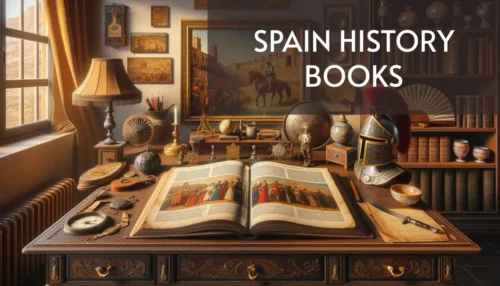
The History of Spain ranges from prehistory to the present day. Approximately 1.2 million years ago the first hominids arrived in Spanish territory. These were followed by species such as Homo antecessor and Homo neanderthalensis; Homo sapiens arrived about 35,000 years ago.
The region currently occupied by Spain, has been the center of attention of some of the most important empires in the world: the Romans and the Carthaginians fought for it, the Arabs managed to conquer it, and then the Christian kings began what came to become the largest empire on the planet, when they discovered America.
With the conquest of America, the Spanish Empire was born, under a single King Felipe II. During this reign the country was involved in various conflicts with foreign powers.
Spain was also under the yoke of the dictator Franco who with his death gave way again, to the already traditional Spanish monarchy.
48) U.S. History Books

The United States (U.S.A.) is a nation with a history that is not very old, but very intense. A country with a mixture of cultures from different parts of the world.
From the British colonization in the north of the American continent, the United States of America was born. Between the 17th and 18th centuries, groups of British immigrants founded the Thirteen Colonies on the coast of the Atlantic Ocean, east of the Appalachian Mountains.
Increased taxes after 1765 and repressive measures by the English government led to discontent and the outbreak of the American War of Independence, as the colonies considered their obligation to pay taxes to England without political representation in the London parliament to be unjust. The independence of the United States marked the beginning of insurgent struggles throughout the Americas.
49) World History Books
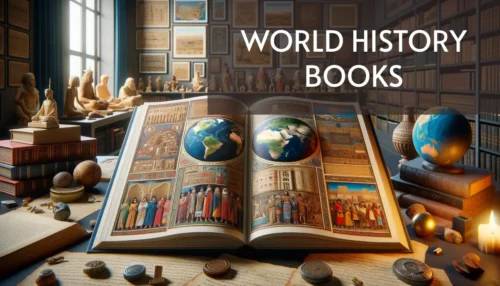
World history is the compilation of facts and situations that have developed around the context of the human being, from the appearance of humans to the present day.
The origin of the term world history derives from the Greek ἱστορία, which means “inquiry”, and from the Old English weorold, which means roughly «age of man».
The main objective of World History is to present, in a chronological and organized manner, what have been the most important events in the history of humankind and its development, dividing into periods the most outstanding and significant moments of humanity, which according to researchers mark a before and after in history.
50) World War I Books

World War I marked the first major international conflict of the 20th century. The assassination of Archduke Franz Ferdinand, heir to the Austro-Hungarian crown, and his wife, Archduchess Sophie, in Sarajevo on June 28, 1914, kicked off hostilities, which began in August 1914 and continued on several fronts over the next four years.
The fighting took place mostly in Europe, but countries on five continents participated, including the United States, Australia, Brazil and China.
There are no official records, but it is estimated that around 9 million soldiers and more than 7 million civilians were killed. The number of casualties was much higher than in previous wars, partly because of technological advances in warfare.
51) World War II Books
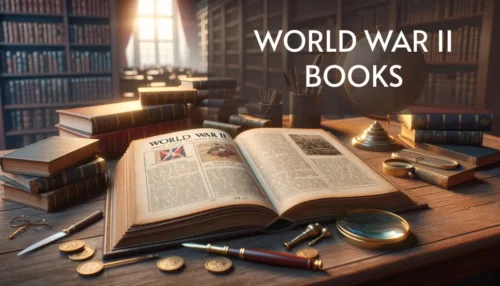
World War II was the deadliest conflict in history. Millions of people, both soldiers and civilians, died in the various battles that took place during the six years it lasted.
Despite the controversies, historians agree in pointing out several factors of particular importance: the permanence of unresolved conflicts from the World War I, the serious economic difficulties in the immediate post-war period and after the crash of 1929 and the crisis and weakening of the liberal system; all this contributed to the development of new totalitarian currents and the establishment of fascist regimes in Italy and Germany, whose aggressive expansionist policy would be the trigger for the war.
In the development of World War II three phases are usually distinguished: the «blitzkrieg» (from 1939 to May 1941), the «total war» (1941-1943) and the defeat of the Axis (from July 1943 to 1945).


